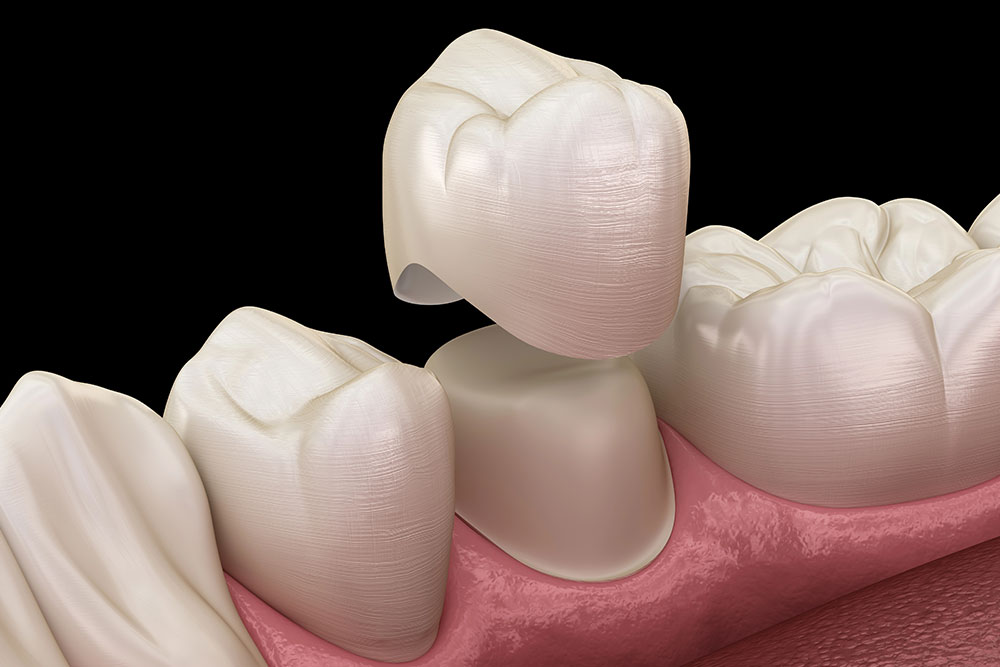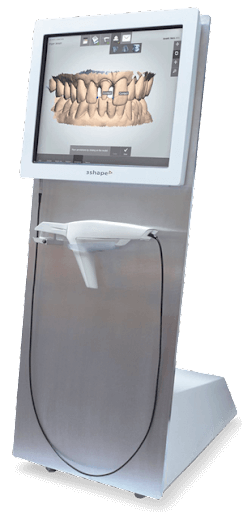Cementing zirconia crowns might seem straightforward, but small missteps can lead to significant issues like debonding, marginal leakage, or even restoration failure. Since zirconia behaves differently from other ceramic materials, specific cementation protocols are required to optimize retention and longevity.
Understanding how zirconia interacts with different cements and surface treatments can make a huge difference in clinical success. Read on for best practices when working with zirconia crown cementation.
Why Proper Zirconia Preparation Matters Before Cementation
Proper zirconia crown preparation is critical to long-term restoration success. Accurate reduction, margin design, and surface handling directly influence crown strength, fit, and bonding performance during the cementation phase.
1. Start With a Clean Surface

Contamination is one of the leading causes of bonding failure. After try-in, zirconia crowns must be cleaned thoroughly. Even invisible saliva or blood residues can interfere with cement adhesion.
Tip: Use a zirconia-specific cleaner or a sodium hypochlorite solution after try-in to decontaminate the crown surface.
2. Decide: Conventional or Adhesive?
Depending on your clinical goals and prep design, Zirconia allows for both conventional and adhesive cementation.
- Conventional cementation (with RMGI or glass ionomer) is often suitable for retentive preparations and posterior crowns.
- Adhesive cementation is ideal for short preps or when additional retention is needed. It requires more steps but significantly enhances bond strength.
Choose your method based on the case—don’t default to one over the other.
3. Sandblast the Intaglio Surface
Air abrasion with aluminum oxide is essential before adhesive cementation. This roughens the inner surface, increasing mechanical retention. Ensure the following:
- Use 30–50 micron particles
- Pressure: 1.5–2.5 bars
- Keep a safe distance (around 10 mm)
Be careful not to damage margins or over-abrade thin areas.
4. Use the Right Primer
Zirconia doesn’t etch like glass ceramics. Instead, use an MDP-containing primer to promote chemical bonding between the crown and the cement.
Apply the primer after sandblasting, and allow proper dwell time as recommended by the manufacturer before seating
5. Keep the Tooth Isolated and Dry
Moisture control is crucial during zirconia crown cementation. Adhesive systems are particularly sensitive to contamination. If isolation is tricky, consider using a rubber dam or retraction system to create a clean environment.
6. Follow Cement Instructions Closely
Not all resin cements are the same. Some are self-adhesive, while others require a bonding agent. Missteps in curing time or application order can compromise retention.
- Don’t skip the manufacturer’s instructions
- Avoid premature curing—light-cure only after seating
- Clean excess cement at the gel stage to protect margins
7. Verify the Fit Before Cementing
Always confirm that the zirconia crown seats fully before cementation. Incomplete seating due to interferences or tissue impingement can lead to uneven stress and debonding.
Check contacts, margins, and occlusion. Make adjustments ahead of time, not after cementation.
Lock In Long-Term Success
Zirconia is one of modern dentistry’s strongest and most reliable materials—but only when cemented correctly. Following these best practices helps ensure predictable retention, minimal sensitivity, and excellent aesthetics for your patients.
At Next Dental Labs, we support your success by delivering high-quality zirconia restorations with precision and consistency, at prices more than 50% below the competition. When your lab partner gets it right, your cementation process becomes that much smoother.

